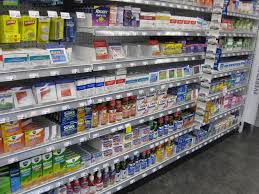Drug-induced acute liver failure is uncommon, and over-the-counter medications and dietary and herbal supplements — not prescription drugs — are its most common causes, according to new research from the Perelman School of Medicine at the University of Pennsylvania. The findings are published in the current issue of Gastroenterology.
One of the most feared complications of drugs and medications is acute liver failure, traditionally associated with a greater than 50 percent chance of dying without a liver transplant. Drug-induced liver injury, known as hepatotoxicity, is the second most common reason drugs are withdrawn from the market, behind cardiac toxicity, according to the U.S. Food and Drug Administration (FDA). The Penn authors, however, say this is based solely on abnormal liver tests, not actual liver damage. The real risk of acute liver failure that the researchers calculated was 1.61 per million people per year.
“Despite widely publicized cases of drug-induced acute liver failure related to acetaminophen and other medications, there are, until now, no studies to specifically evaluate the incidence of acute liver failure arising from drug-induced liver injury in the broader population,” says senior author Vincent Lo Re, MD, MSCE, assistant professor of Medicine in the division of Infectious Diseases and assistant professor of Epidemiology in the Perelman School of Medicine at the University of Pennsylvania.

